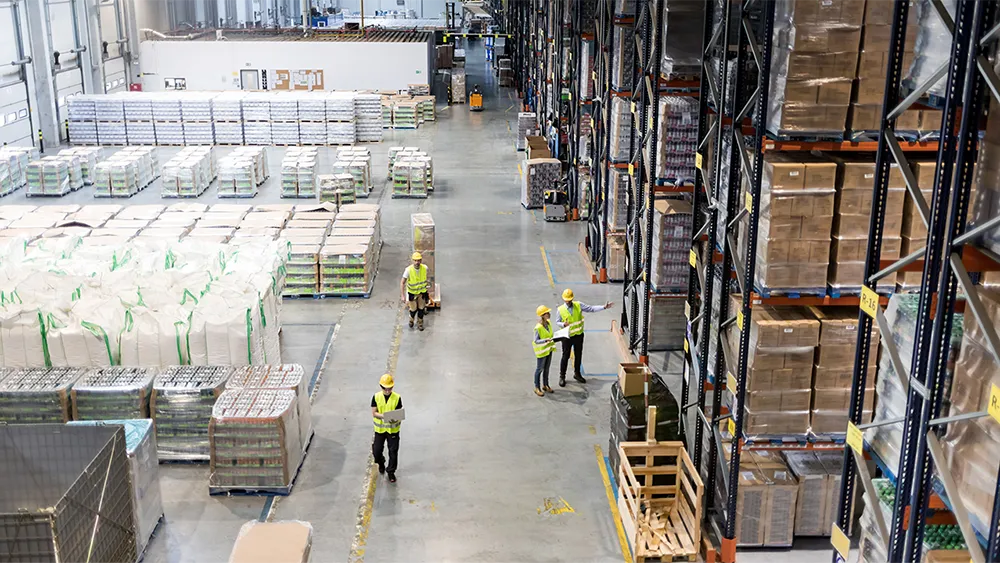Manufacturing and Logistics
Navigating e-commerce chaos with AI and data-driven efficiencies
Thursday June 19, 2025

Marina Golemis of ShipBob discusses the importance of outsourcing fulfillment for e-commerce brands to alleviate logistical challenges.
AI presents opportunities to optimize logistics and decision-making and companies should outsource its implementation rather than building intricate systems in-house.
Golemis says small e-commerce brands should outsource fulfillment as early as possible to focus on core growth activities.
The biggest misconception for e-commerce brands is feeling they're 'too small' to outsource fulfillment. The reality? You should outsource as early as humanly possible.

Marina Golemis
SVP of North American Sales, ShipBob
For many e-commerce hopefuls, the dream of direct-to-consumer glory crashes hard against the cold reality of a garage overflowing with unfulfilled orders. That initial spark of a great product idea often dims under the logistical nightmare of actually getting it to customers, forcing product providers into the paralyzing decision of whether fulfillment woes are really worth the hassle.
"The biggest misconception for e-commerce brands is feeling they're 'too small' to outsource fulfillment," says Marina Golemis, who as SVP of North American Sales spearheads growth for ShipBob, a global e-commerce fulfillment platform serving over 5,000 brands. "The reality? You should outsource as early as humanly possible. It allows entrepreneurs to take that massive headache off their plate so they can focus on critical growth areas like product development and marketing, instead of worrying about warehousing and shipping."
Opportunities in the margins: In an e-commerce battlefield where every fraction of a cent counts, "the name of the game is just trying to optimize your margin," Golemis states. To that end, ShipBob helps brands by breaking down fulfillment data at a SKU level. "We'll analyze your fulfillment data and say you should put 60% of this SKU on the East Coast, 40% on the West Coast, because that's where your end customer is. Let's cut down on your shipping time, your zones, your costs."
This data-driven approach is a world away from just a few years ago. "I think five years ago there were so many analytics platforms, but no one told you what to do with the data that you had," Golemis recalls. "And today there's so many different ways to look at the data and make really informed decisions."
Siren song: The siren song of AI promises to tame the chaos of e-commerce logistics, but for many, it’s still ambiguous. Golemis’s advice for navigating unclear waters is refreshingly blunt: "Don't try to do it yourself." Attempting to build an in-house AI team for data analysis is a massive undertaking, she suggests, "where the reality is you can outsource this to AI."
ShipBob itself uses AI in its decision engine for inventory allocation. Her counsel for businesses looking to adopt AI? "Just stack rank your pain points. Use those as priorities and solve them one at a time. With AI, don't try to boil the ocean and try to move the pendulum to AI overnight."
The name of the game is just trying to optimize your margin.

Marina Golemis
SVP of North American Sales, ShipBob
Hotbeds of growth: While e-commerce trends can flicker like faulty neon, some sectors consistently burn bright. Health and beauty, for instance, has historically been ShipBob's largest industry, and Golemis currently sees a "particular surge" in brands firing up the "intersection of beauty and wellness." She elaborates, "It's not all about makeup anymore, it's not all about skincare. It's about feeling good from the inside out." Supplements, she adds, "dovetail into that nicely." Apparel is another area creating strong momentum.
New channels, new eyes: "I love how many new channels are popping up," Golemis adds. "Just when you thought every channel was tapped out, then you get TikTok, you get something else and it becomes the fastest growing channel." The dynamism, coupled with how people's shopping habits are changing, fuels the industry's growth.
Robotics versus humans: "For us, it's about do we employ more robotics and automation or do we kind of follow the path that we've been on, which is using automation for redundant tasks, but really using human capital for everything else?" Golemis muses. This question about the right balance is a "hot topic today," she acknowledges, with pros and cons on both sides. For ShipBob, the current focus remains clear: "I think for now we're going to stick with focusing on a strong output for our customers, really strong delivery times, amazing prices."